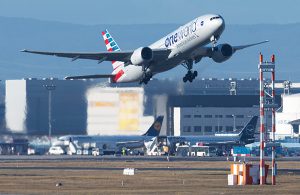So far this year, US carriers have cancelled almost 3% of flights and delayed more than a fifth by an average of 48 minutes, according to data compiled by FlightAware. That compares with just more than 2% of flights cancelled by US carriers during the same stretch of 2019 and about 17% delayed — a reminder that flying wasn’t exactly stress free before the pandemic, either.
The forced hiatus from travelling during the pandemic has cast a new light on inconveniences that were previously considered a fact of life. Just as the daily commute to the office is coming in for a reevaluation, so too are the hassles of air travel. There’s no reason passengers who paid good money for airline tickets should have to simply grin and bear a 10-hour airport adventure when their flight is delayed again and again.
Stranded travellers shouldn’t have to spend hours on hold to negotiate accommodations that are more comfortable than
an airport floor. Such headaches seem particularly unfair after US taxpayers fronted more than $50 billion in Covid payroll aid for the purpose of preserving air travel as vital national infrastructure. No other industry received the kind of special Covid dispensation that the airlines did, although many asked for it, including restaurants and bus operators.
Many airlines will try to make things right for passengers whose flight plans go awry, but they are obligated to do so only in certain scenarios and the reality of travel disruptions — as many of us know all too well — is anything but the customer-service gold standard. Under US Transportation Department regulations, passengers are entitled to a full cash refund (including bag and service fees) if an airline cancels their flight. They are also owed the difference in fare if they get downgraded to a lower-class cabin.
But beyond that, the rules are vague. A customer can seek a refund if there is a “significant†schedule change or delay, but there’s no definition for “significant,†and the Transportation Department makes determinations case by case. From a practical standpoint, this is a giant pain. Most passengers probably don’t bother as long as they eventually reach their destination.
The patchy airline consumer protections in the US contrast with the European Union, which requires carriers to compensate passengers up to 600 euros if their flight arrives more than three hours late for reasons apart from weather and other extraordinary circumstances. The amount varies depending on the length of the journey.
Delays of more than five hours at departure warrant a refund, and airlines are also required to offer meals and refreshments under certain circumstances.
—Bloomberg
 The Gulf Time Newspaper One of the finest business newspapers in the UAE brought to you by our professional writers and editors.
The Gulf Time Newspaper One of the finest business newspapers in the UAE brought to you by our professional writers and editors.
